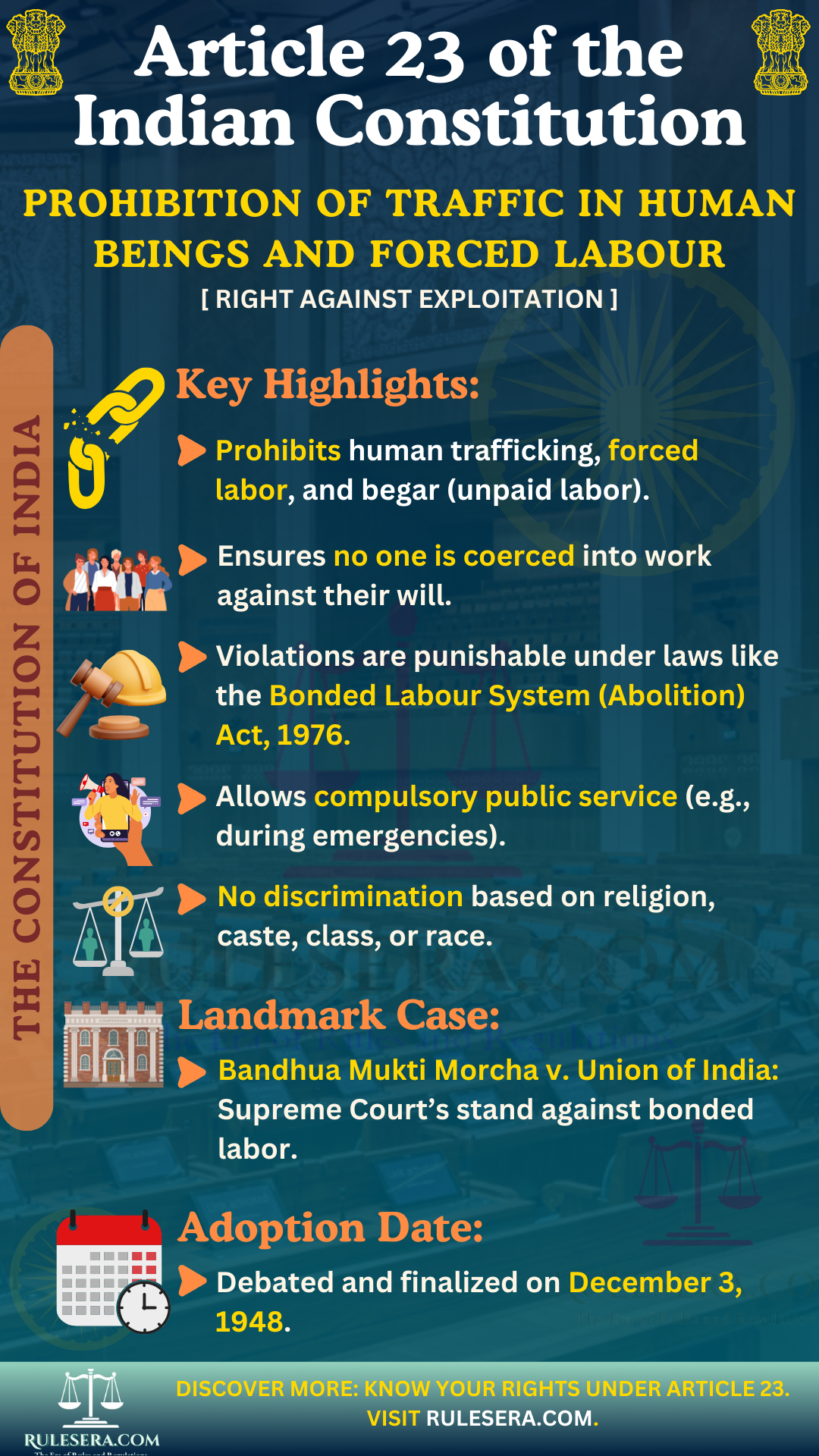Article 23: Prohibition of Traffic in Human Beings and Forced Labour:: Right to Exploitation

(1) Traffic in human beings, begar, and other similar forms of forced labour are prohibited. Any violation of this provision is an offense punishable by law.
(2) Nothing in this article prevents the State from imposing compulsory service for public purposes, provided that no discrimination is made on the grounds of religion, race, caste, or class.
Explanation
Article 23 safeguards against human trafficking, begar, and all forms of forced labor, ensuring that individuals are not exploited or coerced into work. This provision upholds human dignity and individual freedom, with violations constituting a punishable offense.
Key Aspects of Article 23
- Prohibition of Forced Labour: Bans practices such as begar and any other forms of involuntary servitude, protecting individuals from exploitation.
- Exceptions for Public Service: Allows compulsory public service without discrimination based on religion, race, caste, or class.
Real-Life Applications
The Bonded Labour System (Abolition) Act, 1976, enforces Article 23 by criminalizing bonded labor and promoting rehabilitation efforts for affected individuals. Cases such as Bandhua Mukti Morcha v. Union of India have reinforced the state's duty to eradicate forced labor.
Frequently Asked Questions (FAQs):
Article 23 prohibits human trafficking, begar (forced labor), and other similar exploitative practices, making any contravention a punishable offense.
Yes, the State can impose compulsory service for public purposes, as long as it is done without discrimination based on religion, race, caste, or class.
The Bonded Labour System (Abolition) Act, 1976, supports Article 23 by criminalizing bonded labor and providing for the rehabilitation of bonded laborers.